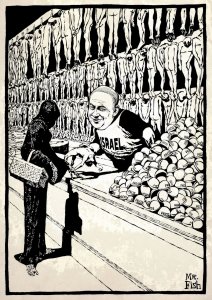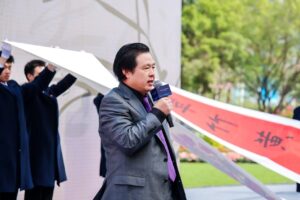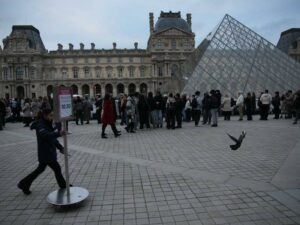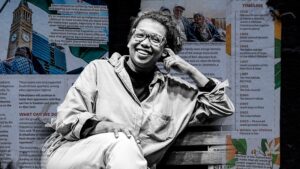
UPDATE: The National Press Club of Australia has abruptly canceled a highly anticipated lecture by Pulitzer Prize-winning journalist Chris Hedges, scheduled for October 20, 2025. Hedges, renowned for his coverage of conflicts in Gaza and fluent in Arabic, was set to address the “Betrayal of Palestinian Journalists” when the invitation was mysteriously withdrawn, sparking outrage among media advocates.
This cancellation raises urgent questions about press freedom in Australia, as critics argue it reflects a dangerous trend of censorship. Hedges was invited to deliver his speech during the Edward Said Memorial Lecture but faced an unexpected withdrawal from the event, officially cited as an attempt to “balance” programming. However, the Press Club’s rationale has been met with skepticism, especially after previous commitments were confirmed.
Amid mounting pressure from pro-Israel factions, many suspect that the Press Club backed down to avoid backlash. Hedges’ critique highlights the alarming reality that many Western journalists prioritize access over truth, leaving Palestinian voices marginalized as they report on the ongoing conflict.
The timing of this incident couldn’t be more critical. Australia’s press freedom has plummeted in recent years, with the nation falling twelve places in the latest global press freedom index. The influence of the Murdoch media empire, which dominates nearly 60% of newspaper circulation, has intensified concerns over biased coverage and propaganda against Palestinian narratives.
In the face of such pressures, the Australian Broadcasting Corporation (ABC) has also come under scrutiny for amplifying Israeli government narratives, often underreporting civilian casualties in Gaza. Internal protests within ABC have revealed a climate of fear and self-censorship, raising alarms about the suppression of dissenting voices.
Hedges delivered his critical address at the NSW Teachers Federation Conference Centre, where he began with a pointed remark about the absence of corporate sponsorship from entities implicated in violence. He emphasized the two types of war correspondents: those who report from the field without seeking government approval, and those who merely disseminate official narratives.
“There are two types of war correspondents,” Hedges asserted. “The first being a minority that report from combat zones… and the majority, the ‘inchoate blob’ who slavishly disseminate whatever they are fed by officials.” He argued that the true enemy of genuine journalism is the systemic bias that undermines the work of Palestinian journalists.
The fallout from this incident raises critical implications for the future of journalism in Australia. If even a Pulitzer-winning journalist can be sidelined for confronting uncomfortable truths about Gaza, what hope remains for marginalized voices? Observers argue that this is not merely a failure of the Press Club, but a broader betrayal of the journalistic principles that should uphold truth and integrity.
As the international community watches closely, the actions of the Press Club and Australia’s media landscape reveal a troubling narrative—one that prioritizes “balance” over truth, risking the very fabric of press freedom.
The public deserves a media landscape that confronts facts courageously rather than yielding to pressures that silence critical voices. The victims of Gaza’s ongoing crisis and their journalists deserve better representation and acknowledgment from the institutions meant to protect free speech.
For those interested, the full transcript of Chris Hedges’ speech can be found here: Stenographers To Power.






